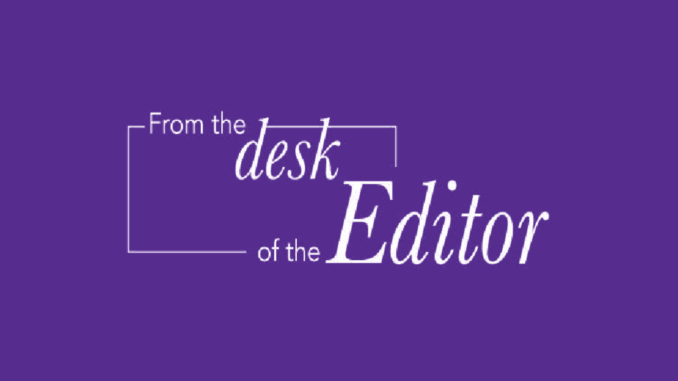

“The unprecedented global pandemic.” Those words have been haunting us for the past year and a half. Even my nine-year-old niece has the term “coronavirus” in her everyday vocabulary. When this all started in 2019 — 2020 for the United States — I don’t think anyone expected it to go on this long. But what happens when breaking news becomes old news? At The Index, we have done our best to cover COVID-19 from different angles but at this point, even our writers are burned out from even hearing the terms “mask mandate,” “vaccination” and “social distancing.” Admittedly, I am too.
We experienced the pandemic together, the highs and lows. We were scared for our own health and the health of our families. We were in lockdown for months. We endured online classes. But what now? We have been on the edge for so long, it no longer is the edge. The “unprecedented” has become the precedent. Most students no longer forget to bring a mask to school, we are all used to it by now. We no longer complain about Zoom classes, but just opt for them when we don’t want to get out of bed.
It seems as though life has gone back to normal, or at least we have changed our definition of “normal” to adapt to the life we’ve been living for almost two years. However, as things fall back into the mundane, there are still news stories breaking every day related to the pandemic.
Daniel E. Slotnik with the New York Times wrote on Tuesday of this week, “An independent committee of experts advising the Food and Drug Administration voted to recommend authorizing the Pfizer-BioNTech coronavirus vaccine for children 5 to 11 years old, opening the way to inoculate 28 million children in the United States.”
The COVID-19 news goes much farther than the United States’ borders. The New York Times also reported that Moderna agreed to sell up to 110 million COVID-19 vaccine doses to African countries. This is after calls from the World Health Organization for pharmaceutical companies to help the vaccination efforts in countries that need it. The New York Times also reported that Hong Kong’s quarantine rules have gotten even tighter, after being known as some of the strictest around the globe. As of Tuesday, China has locked down a northwestern city due to a small outbreak.
What I am trying to say is, there is still news to be covered regarding the pandemic. While we may be fatigued right now, it is important to remain vigilant. When our guard comes down and we stop following COVID-19 precautions is when we open ourselves up to illness.
My family was all diagnosed with COVID-19 a few weeks ago. Most of my family is vaccinated and very particular about masking and social distancing. However, because news about COVID-19 had seemed to slow down, they let their guard down and got sick because of it.
Patrick Cockburn with The Nation wrote, “The polio epidemic in Cork supposedly ended abruptly in mid-September 1956 when the local press stopped reporting on it, but that was at least two weeks before many children like me caught it.”
We cannot let something this serious fly under our radar. When we let that happen it just gets much worse. Not only do we need to remain vigilant by following COVID-19 precautions like masks and distancing ourselves, but we also need to stay informed even when it is difficult. One of the easiest ways to help stop the spread is to get vaccinated. Lastly, don’t forget what we are up against: a global pandemic.
